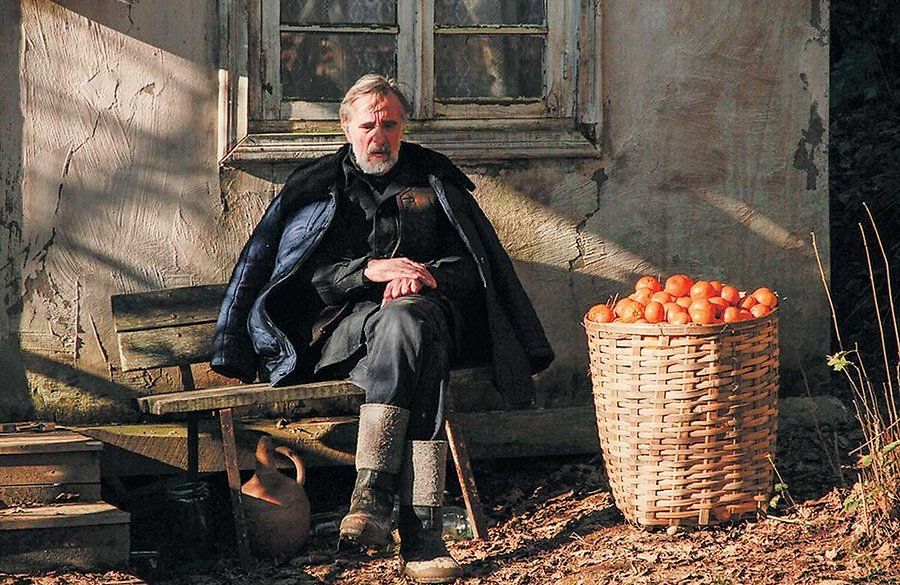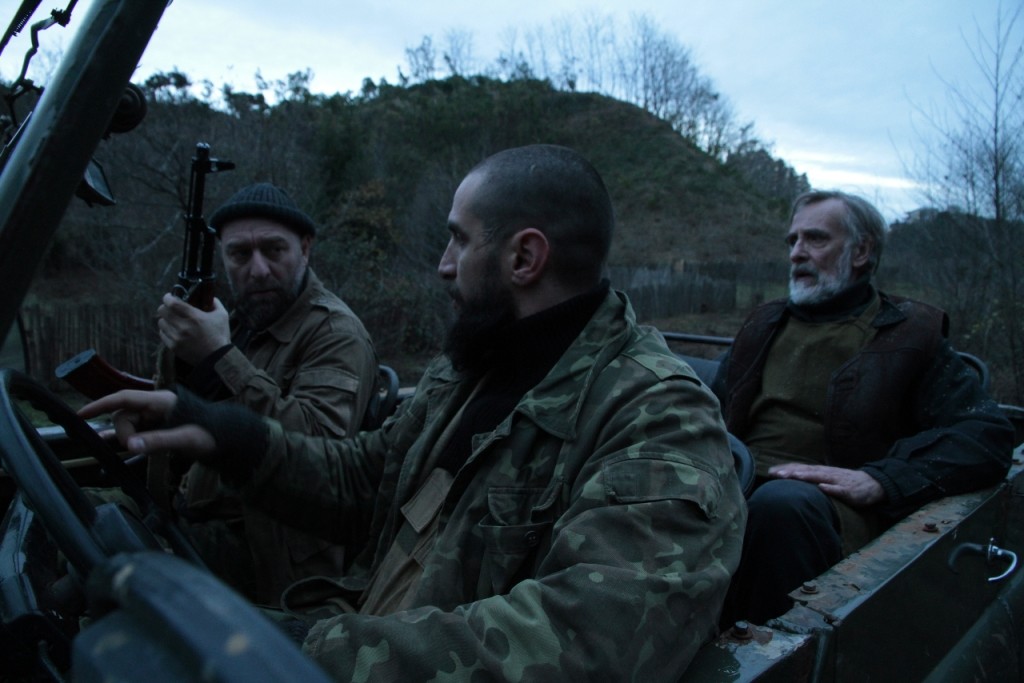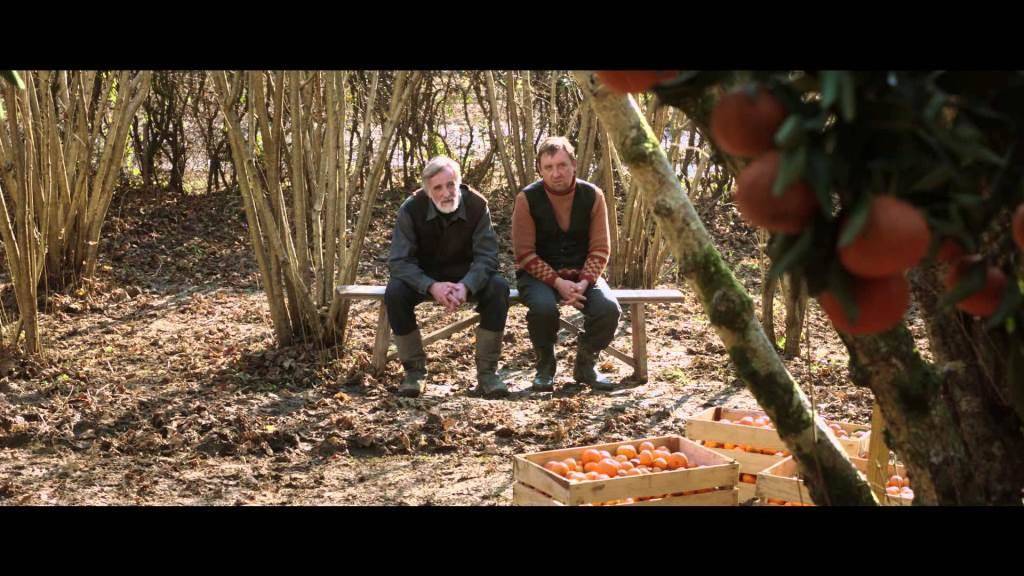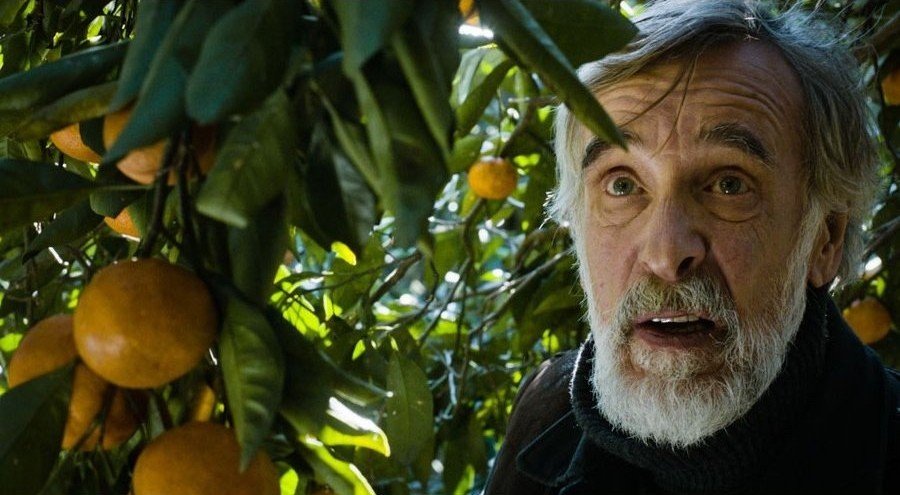The Oscar-nominated Tangerines is a wonderful film that should be celebrated by Estonians the world over. But where does the film’s message fall in the world order?
I’m not a film critic. One only needs to see me laughing hysterically at a low-budget sophomoric comedy, bucket of pseudo-butter popcorn in hand, to realise I’m simply not qualified.
But I recently had the pleasure of attending a Tangerines (Mandariinid) screening, graciously hosted by the Estonian consul general in New York, Eva-Maria Liimets, at a cosy 60-or-so-seat theatre in New York City. The Georgian/Estonian motion picture set in 1992 Abkhazian war-torn Georgia and currently nominated for an Academy Award (Oscar) was written and directed by Zaza Urushadze of Georgia and produced jointly by the two countries. It focuses on a remote Estonian immigrant farming village near the Black Sea, where a skirmish breaks out between a small band of Georgian nationals and separatist rebels. One fighter from each side survives among the many casualties, and two Estonian immigrant tangerine farmers tend to their wounds and nurse them back to health.
During their co-recovery within the walls of the tiny farmhouse, the warring soldiers initially vow to kill each other. But, they find their ideals rehabilitated along with their bodies, and the two eventually find agreement and harmony within the human condition.
Force feeding symbolism into the film screening experience, I began the day with a glass of orange-tangerine juice. Inauthentically though, the tangerines were grown in Florida (well, at least it’s a neighbour of Georgia). On the train ride to the city, to the west, I witnessed a quaint sunset gift wrapped with tangerine ribbons. Minutes later, after the sun sagged from my perspective, a tangerine-coloured moon rose from the bay before transitioning to its more familiar colour once higher in the sky. And were those tangerines I smelled while walking Seventh Avenue to the theatre? Nope, turned out to be diesel fumes (hyperactive imagination, it seems). Regardless, I obviously had tangerines on my mind.
Getting back to the film, clearly, the Tangerines’ message is pacifist. Zaza Urushadze humanises anonymous fighters and emphasises the pettiness and silliness of human destruction driven by religious and ideological zealotry. The message can be telegraphed to countless other altercations the world over. The film conveys this laudable moral with compelling dialogue and excellent visuals, all while simultaneously tickling the funny bone and stirring deep emotions. There are plenty of reviews available that discuss these points and analyse the film. As mentioned though, I’m not a film critic.
Historical fiction Tangerines is, but in reality, sometimes life delivers lemons. Or even oranges. Ask the Ukrainians, who a decade ago took to the streets in the Orange Revolution and now find their sovereign borders invaded by their neighbour to the east. If next-door Vlad watches Tangerines, I doubt he will have an epiphany and realise he’s a dangerous megalomaniac. After the show, he’s not going to look in the mirror and decide that he needs to change his ways.
So, what does this film mean for tiny Estonia?
At the surface, or the rind in this case, one would expect an ephemeral bump in Estonia’s celebrity. Movie aficionados and those that pay attention the news are watching – the spotlight is shining. And the light is positive.
But as we make our way to the flesh of the fruit, as desirable as the film’s message is, can we really expect two Estonian tangerine farmers to end aggression on a larger scale, including the very real threat from today’s Russia? What is the literal of the film’s figurative message?
Urushadze would assuredly say the answer to the above question is a negotiating table – that the tangerine seeds of peace are planted and nurtured with open dialogue and compassion. But it takes two to converse and commiserate. Currently, it seems Vladimir Putin is more interested in taking land with no retribution, toying with NATO and propagating propaganda. Heck, I’d swallow my pride (and smidgen of vodka) with Putin at the table in a tiny farmhouse if I thought it would result in Eurasia kumbaya. But I think anyone would have more luck growing tangerines in Siberia. Just ask Angela Merkel, who sat down with Putin and French President François Hollande this past week, only to return frustrated and conclude prospects for peace in Ukraine are “uncertain”.
A tangerine is easy to peel and separate into pieces, but worldwide peace, that’s not as simple. Once peeled, we certainly find slices of open dialogue and negotiation in the tangerine of world order. But as long as the Putins of the world are annexing portions of sovereign nations and ominously foreshadowing desires for other territories, the nations truly striving for peace must keep up their arms and collective guard. This may seem paradoxical, and is antithetical to the message of a film I hold in high esteem, but it provides a necessary backup plan should unrestricted trust fail.
On the train ride home, I rode in a rear-facing seat so I could reflect and better contemplate the film I had just seen. I realised I didn’t know anything about the other four finalists for the Best Foreign Film Oscar, but for personal reasons, I hope Tangerines takes the statue. And I sincerely hope there is a sequel – Tangerines II, the Georgian/Estonian Citrus Grove of Everlasting World Peace. Because as Zaza Urushadze wants us to understand, humans have their priorities all messed up. But for Estonia, Georgia and other jewels of Putin’s eye, it’s not time to butter the popcorn just yet.
I
Pictures: “Tangerines”/Allfilm.





Saw the movie a couple of days ago and appreciate your perspective. I think I understand the movies’s message and also appreciate its point. I also get hung up on details so I ask this question from an Estonian: Do they have Tangerine Plantations in Estonia?